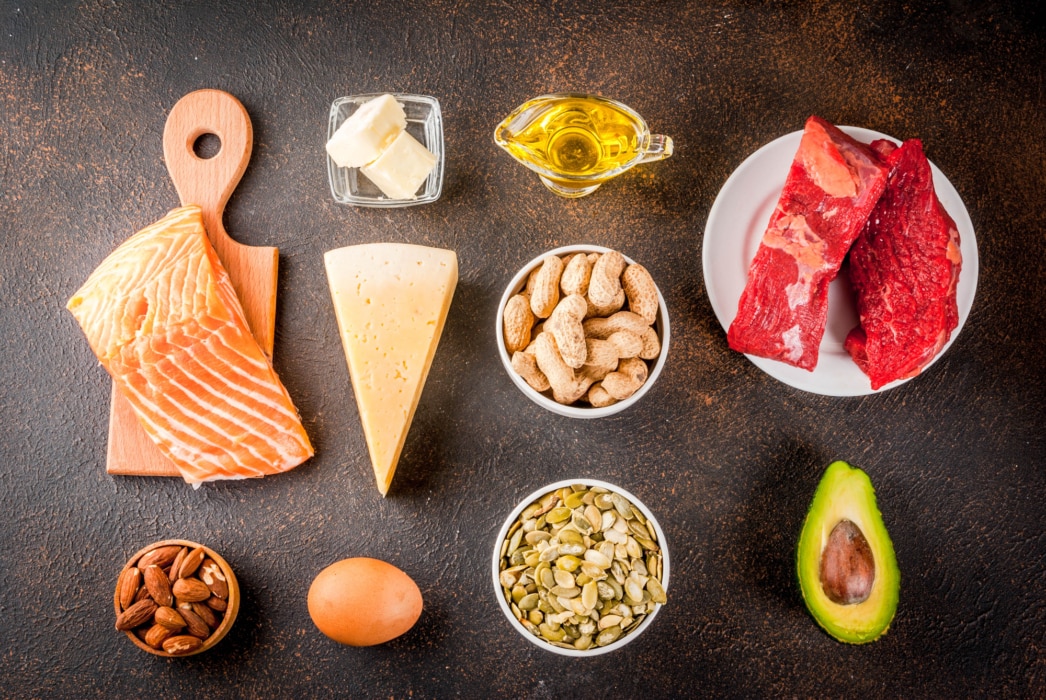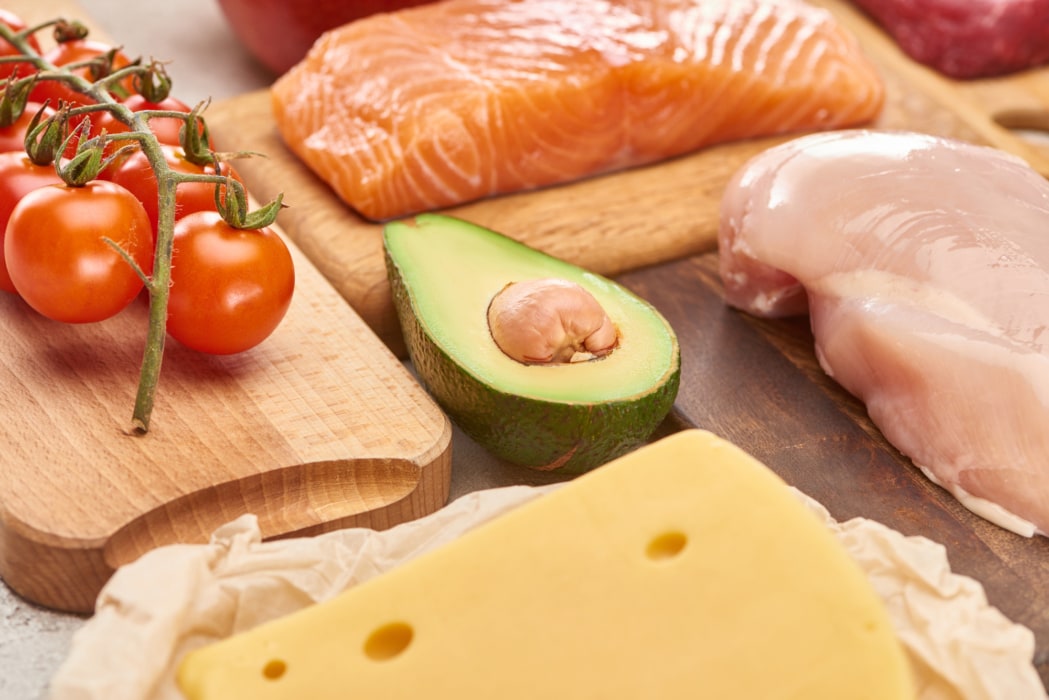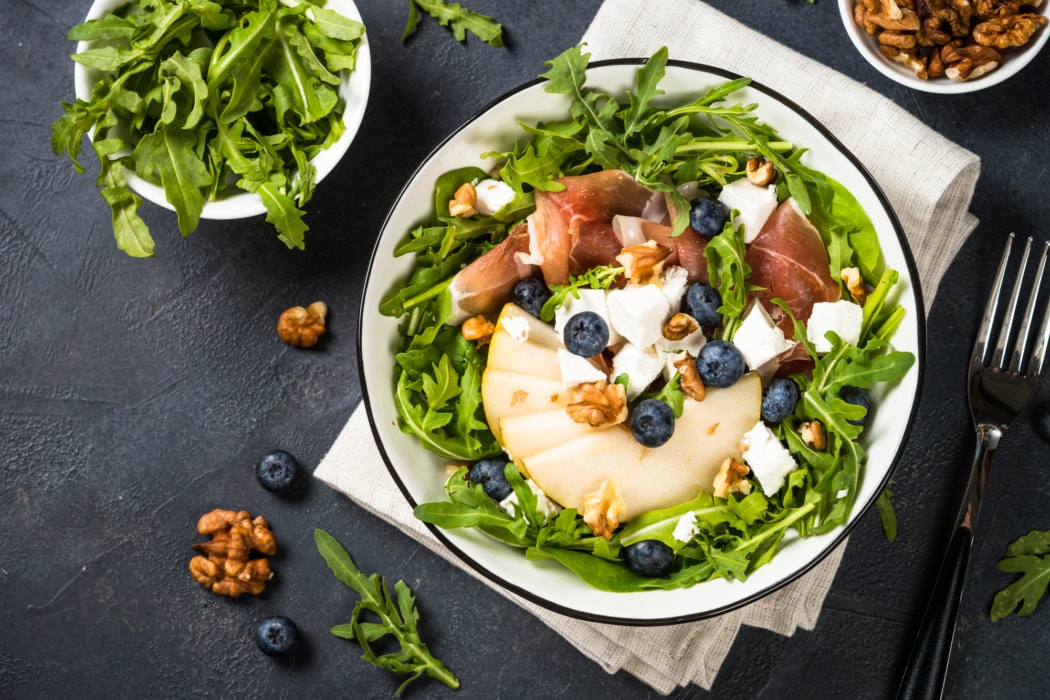When you start the keto diet, it is very important not to overeat carbs and eat enough healthy fats to enter ketosis, avoid keto flu and go through the adaptation process. At the very beginning, you do not yet feel your nutrient norm, so you must count fats, proteins, and carbs to maintain keto proportions and a varied diet. In this case, new meals and constant counting are time-consuming, and you intuitively choose to eat the same food every day because it’s easier for you to keep track of your nutrients.
Also, you can choose the same food every day because it is simple to cook, or you are a picky eater who likes only a few keto recipes. It’s hard to imagine that someone might not like hearty keto meals, but it happens, and that’s normal. In this case, you can find some recipes for yourself and cook them every day. However, is it good for your health and your diet? Can you eat the same meal every day on a keto diet?
Yes, you can eat the same meal on a keto diet every day, but there are certain rules. The most important thing you need to do is choose food that fully satisfies your daily needs for vitamins and nutrients. You should also choose healthy foods that exclude fast carbs and trans fats.

What foods can you eat every day on a keto diet? How to balance daily calorie intake, vitamins, and minerals? How to avoid severe calorie deficit during a restrictive diet for fat loss? I’ll tell you everything about it, so keep reading to find out more!
Can You Eat the Same Meal Every Day on a Keto Diet?
As you have already understood, you can eat the same food on daily basis during a keto diet. However, not every food is suitable for this because it contains different amounts of nutrients and saturates you differently.
No, I do not mean avoiding carbs because it is already so obvious. Different keto foods have fewer carbs or fats. They nourish your body in different ways, depending on the calorie restriction, amount of fat, protein, and vitamins and minerals.
You should be especially careful in choosing food if you practice intermittent fasting and eat 1-2 times a day. Of course, some studies describe the benefits of fasting [1]. For example, there is evidence that eating twice a day is more effective in treating type 2 diabetes [2] than eating six times a day. However, for maximum benefit, your food must be balanced.
Is it good to eat the same food every day on keto? Some studies show a link between regular overeating and the variety of your food [3]. Based on this data, we can conclude that the same balanced food will only help your weight loss and develop healthy eating habits [4]. So, let’s look at a good choice of a daily meal on a keto diet.

What Food Is the Best for Everyday Eating?
For keto dieters to eat the same food every day on a low carb diet, it must be balanced and contain all the necessary vitamins and minerals. So, here is a list of foods you need to add to your keto diet plan for complete nutrition without weight gain.
Eggs
The chicken egg is one of the most nutritious foods in the dietary guidelines. According to one study, eggs increase the feeling of fullness, which helps you avoid overeating. They have the most balanced combination of vitamins, trace elements, and nutrients your body needs to maintain overall health [5]. In addition, it is an easily digestible, high-protein, carbs-free meal.
The chicken egg contains:
- Vitamin A
- Folic acid
- Vitamin B5, B12, B2
- Phosphorus
- Selenium.
Egg whites are low in calories, contain no fat, help lower blood pressure, and are rich in B vitamins. In addition, egg yolks contain choline (its absence leads to the deposition of fat in the liver), a lot of healthy fats, and lecithin, the main building material for the cell membrane.
The composition of the yolk includes:
- Omega 3
- Folic acid
- Lecithin
- Vitamins A, K, E, and B12
- Selenium
- Calcium
- Phosphorus
- Biotin.
Animal Protein
This category includes meat, poultry, fish, seafood, and dairy products (like cottage cheese or butter). You should include this category in your daily diet unless you are a keto vegan. In this case, you should choose other plant sources of protein and healthy fats.
Why is it important to eat animal foods on keto? Protein is an important building block for body cells. It takes part in building, repairing, and maintaining the structure of your body. Protein is present throughout the body, from muscles and internal organs to bones, skin, and hair. Proteins provide about 15% of the amount of food energy a person receives per day. This amount may not seem very large, but it is an essential building material. Proteins must be obtained from food every day [6] since their reserves in the body are not formed.
The amount of protein depends on the value of the specific dietary protein, i.e., from its amino acid composition. Amino acids determine the structure and function of a protein. In this regard, the bulk of dietary proteins must be proteins of animal origin. From these sources, a person can get everything needed with minimal energy costs.

Green Vegetables
If you’re following pure keto, then the main source of your 20 grams of net carbs per day should be green vegetables. Ideally, each of your meals should include about two cups of green leafy vegetables or 150-200 grams of other keto-friendly vegetables.
Green vegetables and herbs contain calcium, iron, beta-carotene, antioxidants, lutein, folic acid, and other beneficial substances that strengthen the immune system and slow down the aging process [7]. Cucumbers, kale, spinach, broccoli, asparagus, cabbage, Brussels sprouts, dill, and other vegetables and herbs are a must on your plate.
Their benefits are based on chlorophyll, a pigment that gives them a rich green color. With its help, at the molecular and cellular levels, regeneration processes occur in the body, fighting against various infections and boosting the immune system. In addition to chlorophyll, green veggies also contain fiber, zeaxanthin, sulfarofan, vitamin C, B, and plant protein.
Green vegetables contain a large amount of fiber, which benefits the digestive system, cleanses the intestines, removes toxins, and normalizes metabolism. They also have a diverse vitamin composition, which varies depending on the vegetable. In order to get all the vitamins and minerals, you should mix or change vegetables in your diet.
Nuts
Nuts are rich sources of healthy fats, vitamins, and nutrients. They can be a hearty keto snack or a great addition to your daily meals. Yes, you can eat peanut butter on keto if it has no added sugars. Most of the nuts composition is healthy fats. They reduce the risk of developing cardiovascular disease and lower the risk of death from various causes by 45%, while mortality from cardiovascular diseases is reduced by 55%.
Nuts help improve the digestive system’s functioning, prevent heart disease, and balance body weight [8]. They also improve mental abilities and normalize sleep. Various vitamins, which are contained in the composition of nuts, help the body release energy from proteins, fats, and carbs. Nuts take part in hematopoiesis and normalize blood clotting. The vegetable protein in nuts is digested faster when combined with vegetable or milk proteins. Therefore, adding nuts to various dishes is very useful for healthy weight loss.
Nuts are rich in magnesium and phosphorus, which strengthen bones, while zinc supports the immune system. In addition, amino acids present in various types of nuts have a beneficial effect on the growth and development of the human body.
The beneficial properties of nuts are fully revealed when they make up a small part of the diet. However, a large amount of this superfood can cause allergies, stomach heaviness, or even poisoning. Nuts are just a healthy and tasty addition to keto, so don’t let them form the basis of your healthy diet. You can learn more about low-carb nuts and their properties in our detailed keto nuts guide.

Conclusion
As you can see, you can eat the same food every day on a high-fat diet. However, this should not be a limited choice, especially if you eat 1-2 times a day. You need to make a menu, so your body receives the necessary supply of vitamins and minerals daily. Green vegetables, meat, fish, eggs, dairy products, and nuts are the basic keto foods that help you maintain good health without nutritional deficiencies. Choose your perfect keto menu for a balanced diet and follow a healthy lifestyle!
Resources:
- Paoli, A., Tinsley, G., Bianco, A., & Moro, T. (2019). The Influence of Meal Frequency and Timing on Health in Humans: The Role of Fasting. Nutrients, 11(4), 719. https://doi.org/10.3390/nu11040719Kahleova, H., Belinova, L., Malinska, H., Oliyarnyk, O., Trnovska, J., Skop, V., Kazdova, L., Dezortova, M., Hajek, M., Tura, A., Hill, M., & Pelikanova, T. (2014). Eating two larger meals a day (breakfast and lunch) is more effective than six smaller meals in a reduced-energy regimen for patients with type 2 diabetes: a randomised crossover study. Diabetologia, 57(8), 1552–1560. https://doi.org/10.1007/s00125-014-3253-5
- Embling, R., Pink, A. E., Gatzemeier, J., Price, M., D Lee, M., & Wilkinson, L. L. (2021). Effect of food variety on intake of a meal: a systematic review and meta-analysis. The American journal of clinical nutrition, 113(3), 716–741. https://doi.org/10.1093/ajcn/nqaa352
- Meessen, E., Andresen, H., van Barneveld, T., van Riel, A., Johansen, E. I., Kolnes, A. J., Kemper, E. M., Olde Damink, S., Schaap, F. G., Romijn, J. A., Jensen, J., & Soeters, M. R. (2022). Differential Effects of One Meal per Day in the Evening on Metabolic Health and Physical Performance in Lean Individuals. Frontiers in physiology, 12, 771944. https://doi.org/10.3389/fphys.2021.771944
- Réhault-Godbert, S., Guyot, N., & Nys, Y. (2019). The Golden Egg: Nutritional Value, Bioactivities, and Emerging Benefits for Human Health. Nutrients, 11(3), 684. https://doi.org/10.3390/nu11030684
- Elmadfa, I., & Meyer, A. L. (2017). Animal Proteins as Important Contributors to a Healthy Human Diet. Annual review of animal biosciences, 5, 111–131. https://doi.org/10.1146/annurev-animal-022516-022943
- Pollock R. L. (2016). The effect of green leafy and cruciferous vegetable intake on the incidence of cardiovascular disease: A meta-analysis. JRSM cardiovascular disease, 5, 2048004016661435. https://doi.org/10.1177/2048004016661435
- de Souza, R., Schincaglia, R. M., Pimentel, G. D., & Mota, J. F. (2017). Nuts and Human Health Outcomes: A Systematic Review. Nutrients, 9(12), 1311. https://doi.org/10.3390/nu9121311